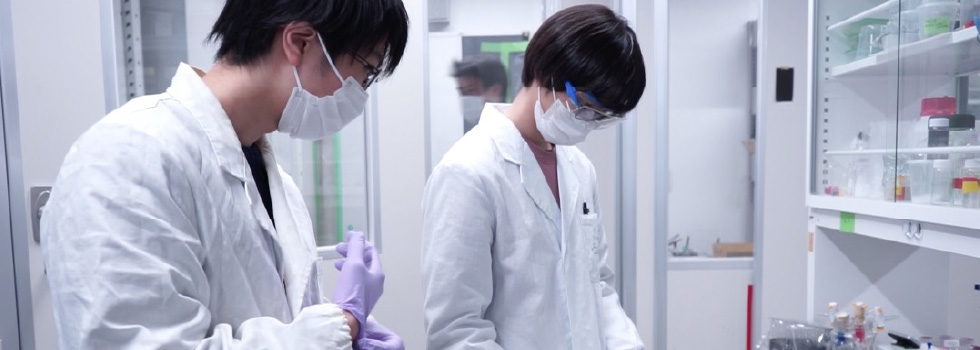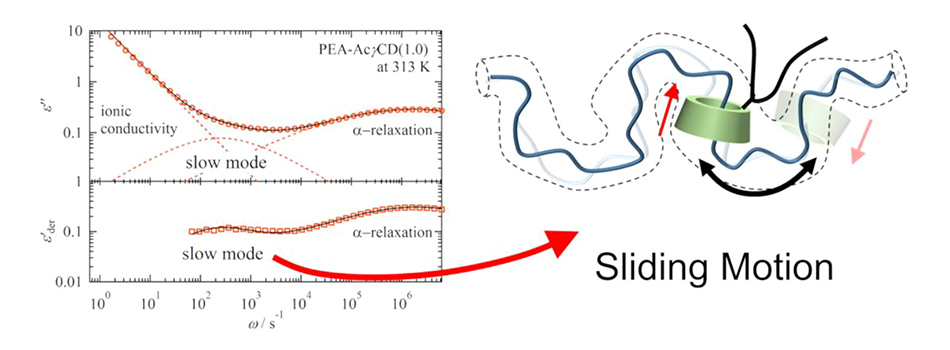
Development of new sustainable polymer materials
Polymers, as typified by plastics, are combined with organic, inorganic, and biological materials, as well as metals, and are implemented in society in various aspects and consumed in large quantities in modern society. The project related to polymers will get together to discuss the development of new sustainable polymer materials, which will be discussed in the International Chemical Summit in 2019. The project have gathered to contribute to the basic science of polymers and the construction of a sustainable society and resource-recycling society, with the aim of “developing new sustainable polymer materials.
FEATURE
Creation of functional polymer materials using bio-based materials.
Development of planar cell scaffolds that exhibit elastic modulus changes using stimuli-responsive polymeric materials.
Physical analysis of supramolecular cross-network materials by reversible and mobile cross-linking is performed.
RESULTS
Research progress
Understanding mobile cross-linking based on polymer science
Mobile cross-links contribute to the improvement of mechanical properties and composites, but it has not been clear how mobile cross-links behave in polymer materials. By investigating polymer science, especially the relaxation behavior and thermal properties, we found that the sliding motion of the mobile crosslink in the material affects the relaxation of the polymer chain and the ratio of the mobile crosslink formed during the reaction.

Further development
Creation of material functions based on basic science of polymer materials
Polymers, whether man-made or natural, are widely used in social infrastructure. In recent years, there has been a growing demand for polymeric materials with lower environmental impact and longer lifespan in order to meet the needs for higher performance devices and machines and to address environmental issues.
In this project, we treat polymers as a broad science including chemistry, physics, and biology, and study to understand the materials functions that arise from the incorporation of flexible bonds in molecular chains and intermolecular interactions. Polymeric materials that can disperse forces and deformations applied to them, make them tougher and less susceptible to fracture. Self-healing materials that can heal wounds spontaneously can lead to smaller and lighter products, as well as provide reliability and safety that could not be achieved with conventional polymer materials. Through the development of such basic research in polymer science and materials, we aim to realize a richer life from an academic perspective.